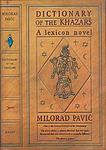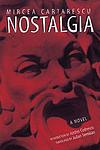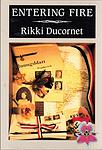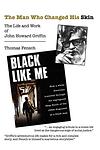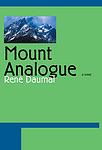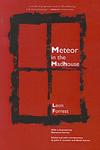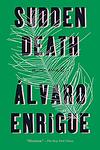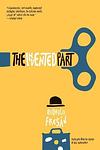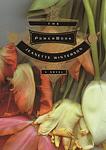The Greatest "Magical Realism, Experimental, Fiction" Books Since 1900
Click to learn how this list is calculated.
This list represents a comprehensive and trusted collection of the greatest books. Developed through a specialized algorithm, it brings together 300 'best of' book lists to form a definitive guide to the world's most acclaimed books. For those interested in how these books are chosen, additional details can be found on the rankings page.
Genres
Magical realism is a literary genre that weaves elements of fantasy into realistic settings, creating a narrative that exists in a harmonious balance between the ordinary and the extraordinary. In magical realist literature, the supernatural is not presented as something to be questioned or explained, but rather as an accepted part of everyday life. Characters might encounter ghosts, engage in telepathy, or experience time in non-linear ways, yet these occurrences are treated as mundane aspects of the world. This genre often explores complex themes such as identity, time, and the interconnection of reality and illusion, blurring the lines between the conceivable and the incredible. Magical realism is rooted in Latin American literature but has become a beloved and diverse genre worldwide, offering readers a lens through which the complexities of life are viewed with wonder and a subtle touch of magic.
The "Experimental" category of books is characterized by works that challenge traditional literary conventions and push the boundaries of form and content. These books often incorporate unconventional narrative structures, language, and themes, and may experiment with different mediums such as poetry, visual art, or multimedia. The goal of experimental literature is to create new and innovative ways of storytelling that challenge readers' expectations and expand the possibilities of what literature can be.
Countries
Date Range
Reading Statistics
Click the button below to see how many of these books you've read!
Download
If you're interested in downloading this list as a CSV file for use in a spreadsheet application, you can easily do so by clicking the button below. Please note that to ensure a manageable file size and faster download, the CSV will include details for only the first 500 books.
Download-
1. Orlando: A Biography by Virginia Woolf
The novel follows the life of a young nobleman in Elizabethan England who inexplicably transforms into a woman at the age of 30 and lives on for three centuries without aging. Throughout the centuries, the protagonist experiences various historical events, engages in relationships with both men and women, and explores the complexities of gender identity and sexuality. The book is an exploration of the fluidity of gender and time, as well as a critique of societal norms and expectations.
-
2. Lanark by Alasdair Gray
"Lanark" is an unconventional narrative that combines elements of fantasy, dystopia, and realism. The protagonist, a man named Lanark, moves through two parallel existences. In one, he's a young man named Duncan Thaw in post-war Glasgow, struggling with his artistic ambitions and personal relationships. In the other, he's Lanark in the grim, bureaucratic city of Unthank, suffering from a mysterious skin condition and grappling with his identity and purpose. The novel explores themes of love, alienation, creativity, and the human condition, presenting a complex and thought-provoking portrait of life and society.
-
3. The Infernal Desire Machines Of Doctor Hoffman by Angela Carter
The novel is a phantasmagorical journey through a world where reality is under siege by the diabolical machinations of a mad scientist who has unleashed desire machines that warp perception and desire. The protagonist, Desiderio, an employee of the Ministry of Determination, embarks on a quest to stop Doctor Hoffman, confronting a series of bizarre and surreal challenges that blend eroticism, philosophy, and violence. As Desiderio travels through cities and landscapes transformed by the machines, he encounters a cast of eccentric characters and experiences dreamlike adventures that challenge the boundaries of reality, identity, and sanity, culminating in a confrontation with the enigmatic Doctor and the resolution of his own complex relationship with Hoffman's daughter.
-
4. The Box Man by Kobo Abé
"The Box Man" is a surreal narrative about a man who chooses to live as a homeless individual, inside a box, in Tokyo. The protagonist, a former doctor, narrates his experiences and observations from within the box, and the narrative often blurs the line between reality and hallucination. The book is a philosophical exploration of identity, anonymity, and the nature of existence, challenging the reader's perception of what it means to be an individual in society.
-
5. The Street of Crocodiles by Bruno Schulz
"The Street of Crocodiles" is a collection of short stories set in a small town in Poland, illustrating the author's unique perspective on reality. The book portrays the narrator's father's eccentricities and his vivid, often disturbing, imagination. The stories are filled with bizarre, dreamlike imagery and metaphors, presenting a surreal and grotesque view of everyday life. The book is a profound exploration of human nature, memory, and the power of imagination.
-
6. Dictionary of the Khazars by Milorad Pavic
"Dictionary of the Khazars" is a metaphysical, historical novel written in the form of a lexicon. The book presents three different versions - Christian, Islamic, and Hebrew - of the history of the Khazars, an ancient people who converted to one of these three religions. The novel, filled with dreamlike narratives and fantastical elements, invites the reader to become an active participant, choosing their own path through the non-linear text, and even solving a murder mystery embedded within the story.
-
7. The Clay Machine-gun by Victor Pelevin
"The Clay Machine-gun" is a surreal and complex novel that explores the nature of reality and illusion. The story is set in post-Soviet Russia and follows a protagonist who has multiple identities, including a poet in 19th-century Russia, a 20th-century psychiatric patient, and a 21st-century advertising executive. The narrative moves between these identities and realities, blurring the lines between them and creating a layered and philosophical exploration of Russian society, identity, and the human psyche.
-
8. Terra Nostra by Carlos Fuentes
This sprawling, complex novel is a rich tapestry of historical, philosophical, and literary references that explores the identity and culture of Latin America through a fantastical lens. Set primarily in 16th-century Spain during the reign of Philip II, the narrative weaves together the lives of historical figures and fictional characters, blending reality with myth and time travel. The story delves into themes of creation and destruction, the cyclical nature of history, and the quest for a utopian society, all while examining the consequences of colonialism and the search for a Latin American identity that reconciles its indigenous, African, and European heritage. The novel's intricate structure and dense prose challenge the reader to consider the past's impact on the present and future of a region with a tumultuous history.
-
9. Larva: Midsummer Night's Babel by Julián Ríos
"Larva: Midsummer Night's Babel" is a complex and innovative novel that explores the nature of language and the power of words. It's a narrative labyrinth that follows a group of characters through the streets of London on a midsummer night, as they engage in a series of intellectual debates and discussions. The story is filled with puns, word games, and literary references, and is written in a unique style that blends poetry and prose. The novel is also a satire of the literary world, with the characters often critiquing and parodying various literary styles and authors.
-
10. Palace of the Peacock by Wilson Harris
The novel follows a crew of men on a dangerous journey up the Amazon River to find a lost tribe. Led by a domineering, half-indigenous foreman, the crew grapples with the harsh realities of the jungle, their own pasts, and the blurred lines between dreams and reality. As they venture deeper into the wilderness, they are forced to confront their own mortality, the violent legacy of colonialism, and the spectral presence of a beautiful, mysterious woman who seems to embody the spirit of the Amazon itself.
-
11. Life is a Carawanserai Has Two Doors I Went in One I Came out the Other by Emine Sevgi Özdamar
This novel follows the life of a young Turkish girl growing up in the 1950s and 60s, exploring her experiences in a rapidly changing society. The protagonist navigates the complexities of her family life, her struggle with her identity and her eventual emigration to Germany. The book explores themes of female empowerment, cultural clashes, and the immigrant experience, all told through a unique narrative style that blends reality with dreams and folktales.
-
12. Nostalgia by Mircea Cărtărescu
"Nostalgia" is a collection of interconnected stories that explore themes of memory, desire, and the blurred boundaries between reality and imagination. Set in a surreal version of Bucharest, the book delves into the lives of various characters, including a young boy fascinated by his eccentric aunt, a man haunted by dreams of his childhood, and a woman searching for her lost lover. Through vivid and poetic prose, the author weaves together these narratives, creating a mesmerizing exploration of the human experience and the power of nostalgia.
-
13. Soul Mountain by Xingjian Gao
The novel follows a protagonist who embarks on a journey to the remote mountains of Southwest China after being misdiagnosed with lung cancer. Along the way, he encounters a variety of characters and experiences that lead him to self-discovery and a reconnection with nature. The narrative is filled with philosophical reflections, folklore, and tales of rural China, presenting a complex exploration of the human condition and the struggle for personal freedom.
-
14. Entering Fire by Rikki Ducornet
"Entering Fire" is a dark, surreal exploration of the human psyche, set against the backdrop of 19th-century France. The story follows the life of a man obsessed with the bizarre and grotesque, as he delves into the world of sexual obsession, madness, and the grotesque. His journey takes him from the underbelly of Paris to the exotic landscapes of North Africa, as he seeks to understand the nature of desire and the limits of the human mind. The narrative is rich with historical detail and vivid, dreamlike imagery, creating a world that is at once fascinating and deeply disturbing.
-
15. A Change Of Skin by Carlos Fuentes
The novel explores the complex and surreal journey of a disillusioned Spanish historian who, along with his estranged wife, her American lover, and a Mexican guide, embarks on a metaphysical road trip across Mexico. As they confront personal and collective histories, the characters grapple with themes of identity, betrayal, and the search for meaning amidst the ruins of the Aztec and Spanish empires. The narrative weaves together reality and fantasy, questioning the nature of truth and the possibility of genuine transformation in a world where past and present are inextricably intertwined.
-
16. Mount Analogue by René Daumal
The book is a novel that combines surreal adventure with philosophical inquiry, telling the story of an expedition to a mysterious, inaccessible mountain that represents a spiritual quest. The mountain, which connects Earth to Heaven, can only be perceived by those who have refined their inner vision. The narrative follows the explorers as they embark on their journey, facing various challenges and revelations that mirror the inner landscapes of human consciousness and the pursuit of enlightenment. As the climbers ascend, the novel delves into themes of reality, symbolism, and the pursuit of the absolute, ultimately leaving the reader with a contemplation of the unattainable peak of human knowledge and experience.
-
17. The Obscene Bird Of Night by José Donoso
This novel is a labyrinthine exploration of identity, madness, and the nature of reality, told through the fragmented narrative of a reclusive man who has lived his life in seclusion on a decrepit estate. As the protagonist delves into his past, he recounts his experiences among the deformed and the destitute, the aristocracy and the servants, while grappling with his own fears and illusions. The narrative weaves a tapestry of grotesque imagery, mythological allusions, and a collapsing social order, challenging the reader to distinguish between truth and fabrication in a world where the boundaries of sanity are blurred.
-
18. Meteor In The Madhouse by Leon Forrest
"Meteor in the Madhouse" is a posthumously published collection of interconnected novellas that delve into the complexities of African American life and identity. The narrative weaves through the experiences of various characters, primarily focusing on the protagonist's reflections on his life, his relationships with others, and his quest for understanding amidst the chaos of the world around him. The book explores themes of memory, history, and the interplay of reality and fiction, all set against the backdrop of the civil rights movement and the rich cultural tapestry of African American heritage. Through lyrical prose and a non-linear structure, the work challenges readers to contemplate the nature of storytelling and the power of the human spirit to endure and make sense of life's tumultuous journey.
-
19. Sudden Death by Alvaro Enrigue
"Sudden Death" is a historical fiction novel that revolves around a fictional tennis match between the Italian painter, Caravaggio, and the Spanish poet, Francisco de Quevedo. The narrative jumps through time and space, touching on the conquest of the Americas, the political machinations of the Vatican, and the personal lives and rivalries of historical figures. The book uses this surreal and humorous setup to explore themes of art, power, and the chaotic, violent nature of the world.
-
20. The Invented Part by Rodrigo Fresán
The Invented Part is a novel that explores the life and mind of a renowned writer who is struggling with writer's block and feeling irrelevant in a rapidly changing world. As he grapples with his own existence, reality, and the nature of fiction, he embarks on a journey that takes him through his past, the lives of his friends and family, and even through the works of his literary heroes. The novel is a mix of science fiction, pop culture references, and philosophical musings, all woven together by the writer's desire to understand and redefine his place in the world.
-
21. The PowerBook by Jeanette Winterson
"The PowerBook" is a unique blend of reality and virtual reality, exploring the themes of love, identity, and storytelling. The narrative follows an e-writer who writes stories for people on demand, and one of her clients, a woman who wants to escape her relationship and start anew. The book is filled with stories within stories, all of them interconnected, taking readers on a journey through Paris, Capri, and the Internet, while challenging the traditional notions of time, gender roles, and the boundaries between the real and the imagined.
Reading Statistics
Click the button below to see how many of these books you've read!
Download
If you're interested in downloading this list as a CSV file for use in a spreadsheet application, you can easily do so by clicking the button below. Please note that to ensure a manageable file size and faster download, the CSV will include details for only the first 500 books.
Download




